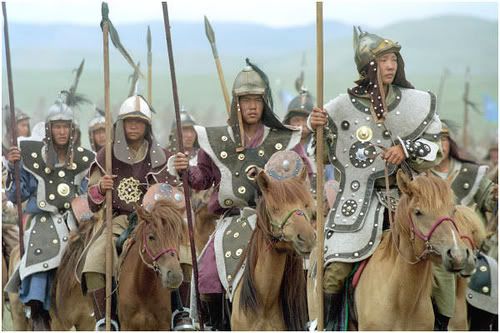By: inoljt, http://mypolitikal.com/
One of the great themes in American politics involves national security. Right-wing hawks argue that America must increase military spending to protect itself from its enemies. This is a very common theme, and it works. America spends five dollars on military spending for every dollar that China (ranked #2 in military spending) does. It spends ten dollars for every dollar on the military that Russia (ranked #3) spends.
But this doesn’t mean that America will win the next big war.
More below.
If you look at history, military spending seems to have little correlation with military strength. There are tons and tons of examples of one country soundly winning a war against another country which outspent it militarily. These examples aren’t obscure. They’re some of the most famous events in world history.
Take the Roman Empire in the late fourth century. The Roman Empire arguably had the highest military budget of any entity in the world at the time. Military spending by the Romans certainly vastly outnumbered military spending by the barbarian tribes to their north.
We all know what happened next, however. The declining, decadent empire was repeatedly invaded and defeated by those tribes. Rome was sacked multiple times. The Western Roman Empire fell in 476.
Let’s take another example. The major regional powers of the West during the seventh century were the Byzantine and Persian Empires, locked in perpetual conflict. Nobody paid attention to the desert tribes in the Arabian Peninsula. Certainly nobody looking at their military budget. Yet those desert tribes had one thing that the Byzantines and Persians didn’t have: they had God. A century later the Islamic Caliphate, with its tiny amount of military spending, had destroyed the Persians and broken the Byzantines.
Then there were the Mongolians, who carved out the largest land empire the world has seen. Every single foe the Mongolians initially defeated – the Arabs, the Chinese, the Eastern Europeans, the Persians, the Russians – probably had a higher military budget. Yet as the Mongolian state grew and Mongolian military budgets with it, military success decreased conspicuously. Kublai Khan outspent the Japanese only to watch his fleet founder in a tsunami.
But things have changed, you might say. Today is the age of guns and atom bombs. No longer can a tribe of barbarian horseman topple an empire. Today the country with a higher military budget generally has the upper hand.
Which is why the United States, for instance, won the Vietnam War.
Military spending does do a lot of useful things. It helps the technology that a country’s soldiers have, for instance. But military spending provides no guarantee about the quality of those soldiers. It couldn’t make enlisted peasants able to resist Mongolian horse-archers. It couldn’t make the American elite willing to send their sons to die in Vietnam. That’s a lesson that many people would prefer to ignore.
